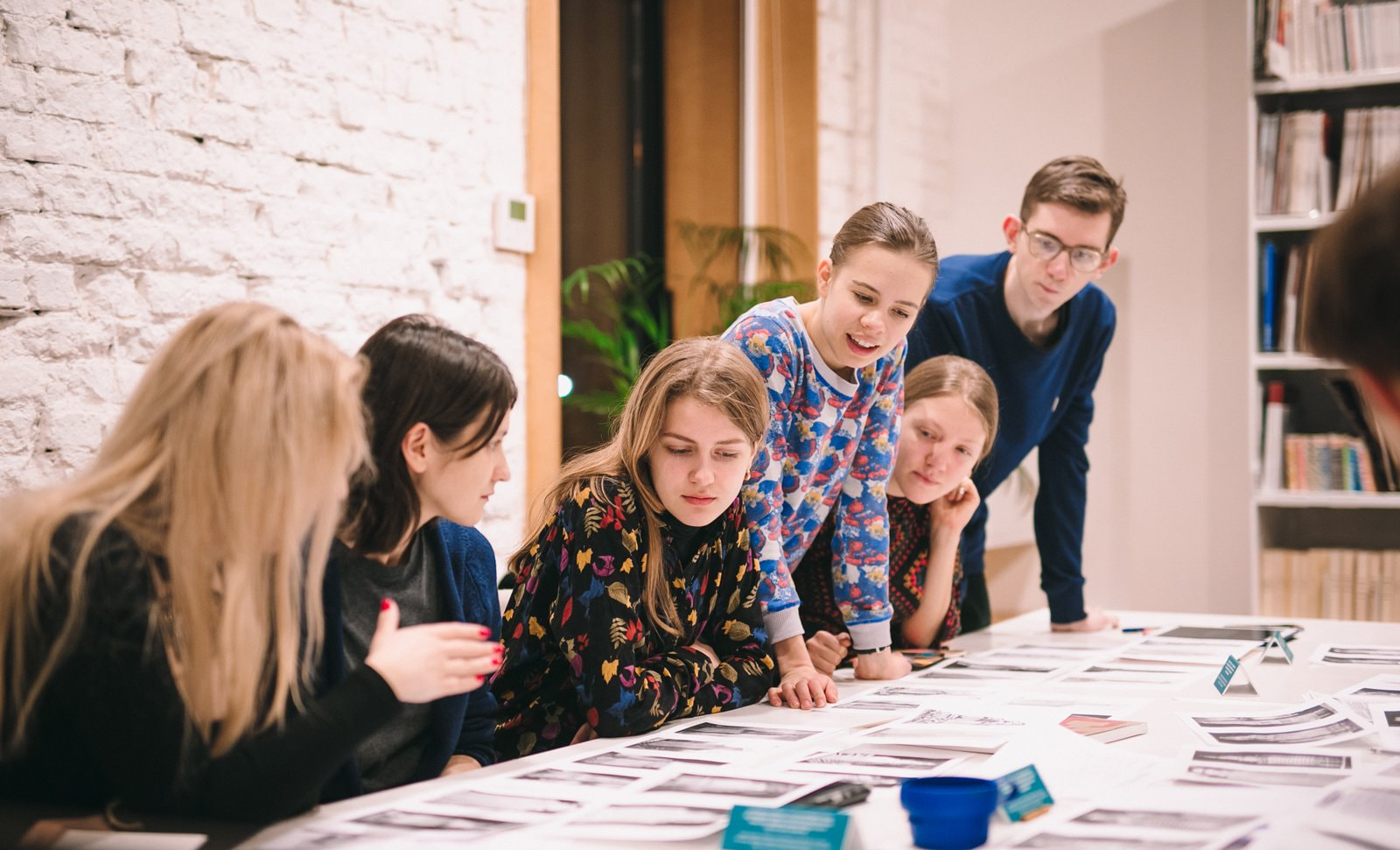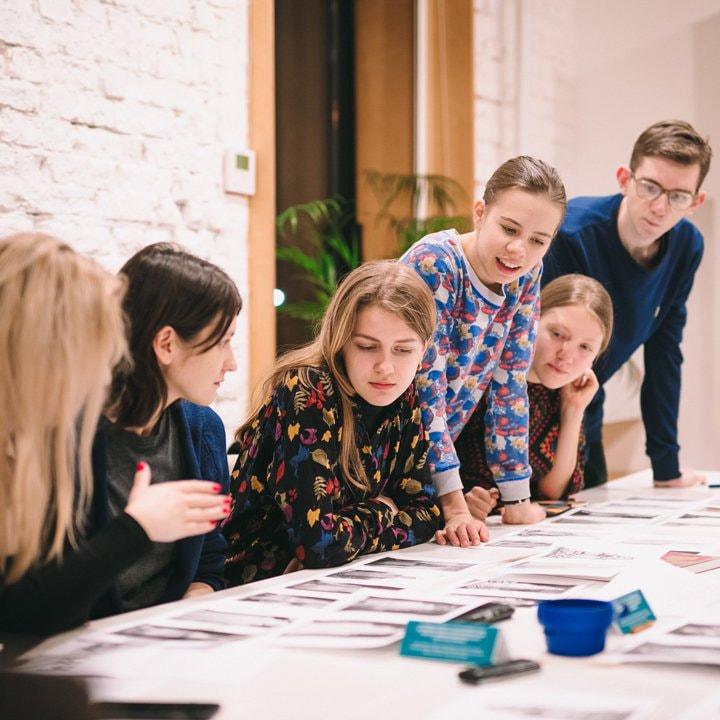READING GROUP 1
Marx, Engels, Kollontai
September 11–October 16
Participants are invited to read and discuss texts on the history and philosophy of the twentieth- and twenty-first-century women’s emancipation movements on both sides of the Atlantic and the Iron Curtain. Based on writings by Alexandra Kollontai, Valery Bryson, bell hooks, Gayle Rubin and other authors, the group will discuss whether the union of patriarchal ideology and capitalism was indeed unavoidable and if market economy can be compatible with feminist ethics; they will trace the development of left feminism and intersectionality (a methodology that connects gender issues to racial, social, and economic factors in the formation of subjectivity) and learn why Marxism, despite its focus on women’s liberation, was not particularly successful at solving gender issues; what liberation “after the revolution” means; and how the "masculine Marx" is critiqued today.
Moderators:
Lolita Agamalova — feminist, prosaist, student at the Philosophy Faculty at State Academic University for the Humanities.
Oksana Kita — feminist, junior researcher at The Pushkin State Museum of Fine Arts, author of articles and poetic texts.
REGISTRATION
READING GROUP 2
Collective Traumas: How and Why Do We Speak about the Horrible (Im)Possible?
September 12–October 17
Today trauma studies is a dynamic field bringing together methods and perspectives from many disciplines. Collective traumas that break the language we use to describe extremely horrifying experiences are studied by historians, sociologists, cultural theorists, and philologists. Despite methodological differences, all trauma studies focus of our inability to vocalize or verbalize traumas and the ways we construct the experience of them.
Participants are invited to study some of the key works on trauma, including psychoanalytic writings by Sigmund Freud, studies in cultural sociology by Jeffrey Alexander, and autobiographical texts by Primo Levi, all of which testify to the impossibility of capturing and describing trauma using our habitual language.
Moderator: Oksana Moroz is a doctoral candidate in Cultural Studies. Her area of expertise includes questions of cultural memory and representations of collective trauma. Associate professor at the Russian Presidential Academy of National Economy and Public Administration under the President of the Russian Federation (RANEPA) and Moscow School for the Social and Economic Sciences.
REGISTRATION
READING GROUP 3
Bauhaus and Modernist Architecture
September 13–October 18
The Bauhaus School, which operated in Germany from 1919 to 1933, introduced a radically new approach to form making, art theory, and artistic and architectural practices. The principles of new art formulated at the school determined its development over the past century.
The reading group is devoted to the study of seminal writings by Bauhaus teachers and other twentieth-century theories that informed modernist architecture and urban planning.
Moderator: Ekaterina Kim is an architectural theorist, junior researcher at Likhachov Russian Research Institute for Cultural and Natural Heritage, invited lecturer in General History at the History Department of Moscow State University.
REGISTRATION
READING GROUP 4
Film Theory: The One and the Other
October 2–November 6
The reading group will study texts on film written in the middle of the twentieth century and which question or rethink conventional understanding of film as a universal product alienated from its author or an author’s enunciation; as a naturalistic representation of reality, neutral in relation to the viewer (gender neutral in particular) or as a narrative.
Auteur theory and structuralism; feminist critique and psychoanalytic approach; symptomatic reading and third cinema and film theory, based on non-European philosophy and theory of art: these attempts of reviewing the dominant film discourse make the panoramic picture of cinema thought in the age of big theory, which has informed contemporary feminist, post-colonial, post-Marxist and post-industrial agenda.
Moderator: Vasily Koretsky is a film critic and cinema editor at Colta.ru. From 2004 to 2010 he was the Cinema editor at Time Out Moscow. In 2014, he curated the North Korean film program at Saint-Petersburg International Media Forum. He is a lecturer at the School of Cultural Journalism, Pro Arte Foundation (Saint-Petersburg).
REGISTRATION
READING GROUP 5
Theatre of Participation: From Mass Spectacles to Participatory Art
October 24–November 28
Today’s theatre often departs from the habitual format that treats the viewer as a passive spectator and turns into a kind of laboratory of audience participation. The reading group will focus on the phenomenon of participatory theatre: from the nineteenth-century concept of theatre as a mass festival, which inspired mass performances of the late 1910s and early 1920s in Russia, to contemporary theatre, which turns audience members into key actors. Reading theoretical writings on art and theatre, as well as scripts for early Soviet mass spectacles and festivals, participants will trace the development of participatory performative practices throughout the twentieth and twenty-first centuries.
Moderator: Valery Zolotukhin is a doctoral candidate in Art History and theatre historian, senior researcher at the Laboratory of History and Culture Research of the School for Advanced Studies in the Humanities.
REGISTRATION

